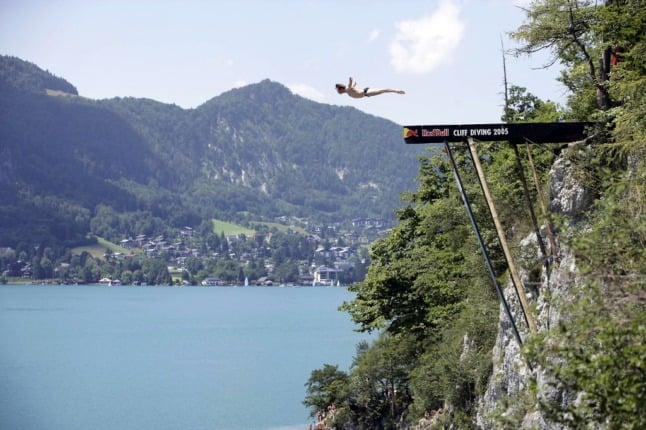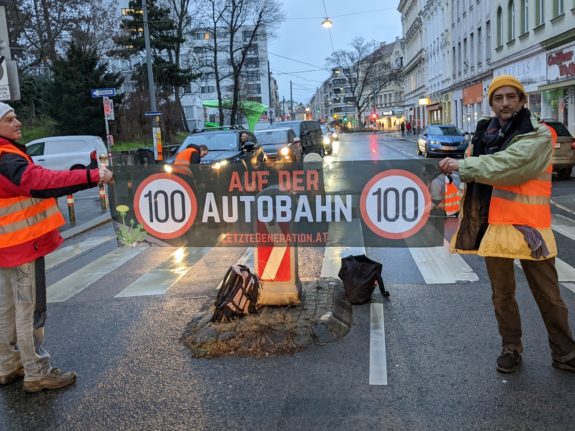End of Covid rules
At the end of June, the Austrian government’s Covid Measures Act, which enabled various measures to combat the Covid-19 pandemic, expired. Consequently, all Covid restrictions were lifted, as previously announced by the Health Ministry.
Most restrictions have already fallen, though, including the mask mandate in the health sector. However, until June 30th, Covid-19 is still classified as a notifiable disease, and there is a specific protocol for those who test positive – including the mandatory use of an FFP2 mask. However, after the act expires, individuals who test positive will no longer be required to notify health authorities or adhere to any restrictions.
The expiration of the measures also means that free Covid tests will no longer be available. Individuals with symptoms will need a referral from their family doctors to undergo testing.
Health Minister Johannes Rauch (Greens) stated that even after the reporting obligation ends, Austria will continue to monitor the progress of the pandemic. This will involve analysing PCR samples and evaluating wastewater in specific treatment plants nationwide.
READ MORE: Austria to drop all Covid restrictions by the end of June
Changes in the broker’s fee
Starting from July 1st, 2023, a significant change was implemented in Austria regarding the payment of brokerage fees, also known as “Provision.” The federal government has announced an amendment to the renter’s law, introducing the buyer’s principle, or Bestellerprinzip, for apartment rentals.
Under the current system, tenants are responsible for various fees, including a security deposit and the first month’s rent when they move into a new apartment. One of these fees is the Provision, a brokerage fee equivalent to two months’ rent, which tenants must pay even if they find the apartment online or if the property owner is the one who engages the services of a brokerage firm.
However, in July, the responsibility of paying the brokerage fee will be on the party that hires the real estate agency. Unless the property is privately rented directly by the owner without involving a brokerage firm (in which case there should be no fee), the cost will now need to be paid by the individual or entity that engages the agency’s services.
This change aims to provide a fairer and more transparent system for tenants, relieving them of the financial burden of paying the brokerage fee when not using the services of a real estate agency for apartment rentals.
READ MORE: CONFIRMED: Austria to scrap broker’s fee on apartment rentals in 2023
Lower energy prices
Wien Energie, the state-owned energy company in Vienna, is poised to implement price reductions starting in July after announcing a €340 million relief package. This initiative aims to lower prices permanently for all customers, including those utilising district heating, electricity, and gas.
According to the company website, Wien Energie serves two million people and 230,000 commercial and industrial establishments in Vienna.
The relief package, funded by the company’s profits, is designed to provide long-term price reductions without specific promotions or vouchers, benefiting all consumers regardless of whether they are existing or new customers.
Households can anticipate savings ranging from 25 to 52 percent on their electricity bills, depending on their contracts and terms. The price reduction is scheduled to come into effect on July 1st, although the company has not officially confirmed this. More details are expected to be unveiled during an upcoming press conference.
READ MORE: Vienna’s energy company Wien Energie to lower gas and energy prices
Certain fees will be more expensive
In response to the upward trend in inflation, banks are adjusting their fees for services such as checking accounts and ATM cards. These contracts are tied to the consumer price index (CPI), so they can be modified accordingly. Bank99, operated by Austrian Post, and Raiffeisenbank Niederösterreich-Wien have already raised their fees, with some experiencing significant increases.
On July 1st, Erste Group raisedits fees by 8.6 percent, while Bank Austria plans to increase theirs by 10.10 percent. BAWAG customers, however, will face an even higher fee hike of 11.55 percent.
Starting from July 1st, Austria saw a 5.51 percent increase in category rents, impacting approximately 135,000 households nationwide. The Rent Law Act mandates that if inflation surpasses 5 percent, the Minister of Justice must declare a rent increase. This adjustment applies to all tenants residing in buildings governed by the Tenancy Act (MRG) and whose lease agreements were entered into before March 1st, 1994.
READ ALSO: Renting in Austria: When can my landlord increase the rent, and by how much?
Partial closure at Wiener Linien and ÖBB
Due to modernisation work on the U4 subway line’s reinforced concrete girders, there will be a partial closure from July 1st to July 30th. During this period, the Vienna subway will not operate between Schwedenplatz and Schottenring.
However, alternative options are available for commuters. Passengers can choose to switch to lines 1 and U2Z, with the latter being extended to Schwedenplatz during the U4 closure.
Additionally, due to the ÖBB extension of the Pottendorf line between Vienna-Meidling and Wiener Neustadt, a closure will be in effect between Münchendorf and Ebenfurth from July 1st to September 4th. A rail replacement service will be provided for the S60 and REX 6 trains to accommodate this closure.
Please note that timetable changes will be implemented during this period. For more information, visit streckeninfo.oebb.at.
School’s out!
The school summer vacations start in July and last until early or mid-September, depending on the state:
- Burgenland, Lower Austria and Vienna: July 1st to September 3rd;
- Carinthia, Upper Austria, Salzburg, Styria, Tyrol, and Vorarlberg: July 8th to September 10th.
There are no national bank holidays during July in Austria.
READ ALSO: The best events and festivals taking place in Austria this summer
Festivals and events
Summer is full of events, and with Covid restrictions totally lifted, Austria is ready to host some of its largest festivals again.
In July, people can look forward to the Salzburg Festival, the Wetterleuchten Festival in Innsbruck, several open-air cinemas and Vienna’s Rathaus culture and culinary festival, among others.



 Please whitelist us to continue reading.
Please whitelist us to continue reading.
Member comments